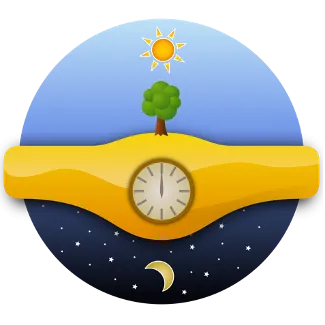To better understand insomnia you need to understand somethings about the brain and it's sleep-cycle:
I WANT TO HELP YOUR battle against insomnia by arming you with information about your brain and the biochemistry behind sleep. Even though all of the suggestions I make in this book can generally help you either go to sleep or stay asleep, you will benefit from understanding how and why my treatments work. Being able to understand the brain and how it sleeps will help you determine which treatments are the most effective in terms of both time and money. So let’s go over a little brain anatomy and some of the biochemistry involved with sleep. |
Sleep-Wake Cycle
Our bodies go through a sleep-wake cycle every twenty-four hours. This cycle is our circadian rhythm, which is run by physiological processes that keep our internal biological clocks regular and synched with the day-night cycle.
Hypothalamus
The hypothalamus is deep in the brain. It is the central hub of the autonomic systems (autonomic systems are functions that happen automatically in your body without you having to consciously think about them; breathing and blinking your eyes are two examples).
The hypothalamus regulates all kinds of things: when to eat and when to drink, as well as when to be awake or asleep. It’s like an internal clock with a switch that turns on or off periods of being awake or asleep.
This clock is internally regulated, but is kept in check and on time by external clues like light and temperature.
Our brain is awakened by the light of the rising sun. Sunlight enters our eyes and travels to the back of the eye (the retina) where it excites nerves. This information travels to the brain via the optic nerve; the brain then turns this information gathered by the retinas into the images we consciously perceive in our brain.
Part of the hypothalamus (the SCN—the suprachiasmatic nucleus of the hypothalamus) also receives direct input from the retina. This is how the body verifies it has the correct time of day. The brighter and the more directly overhead the light is (as in high noon), the more the brain produces “awake” chemicals like adenosine. Adenosine levels rise as we are awake throughout the day. This is why you feel more awake when you are exposed to high-noon sun.
As the sun lowers on the horizon, the intensity of the light lessens (especially blue light, which is why sunsets are red). This signals the brain to prepare for sleep. Chemicals like melatonin are released, and compounds like adenosine (the compound that peaks during waking hours) break down. As melatonin levels peak and adenosine levels fall, you feel drowsy.
Ideally, you fall asleep, and the cycle continues, being kept in check with the rising of the sun.
Jet Lag
This is why you get jet lag when you travel to different time zones. If you live in California (Pacific Standard Time, PST) but travel to Indiana (Eastern Standard Time, EST), when the local time is 9 p.m. EST, your internal clock thinks it’s 6 p.m. PST. But your brain hasn’t been preparing for sleep, so you will find it difficult to go to sleep. You may stay up until 1 a.m. EST because your body feels like it is 10 p.m. PST. Then you will have trouble waking up at 6 a.m. EST because it feels like 3 a.m. PST to your body and mind. This short-term sleep disruption is called jet lag.
Thankfully, our circadian rhythms also detect time by the light of the sun, so typically within days, our bodies will reset to the local time.
If short-term disruptions in our sleep cycles can have a negative impact on our health, can you see how long-term sleep deprivation would also have a negative impact?
You don't have suffer. Why wait?
Insomnia can lead to sickness
If you are not sleeping well, you are either in a dis-eased (mentally stressed) state that can lead to disease, or you have a disease that is causing you to be dis-eased, negatively affecting your sleep. Can you see how this can become a vicious cycle?
I have patients who have suffered from chronic sleep disruption, but were so used to it that they didn’t realize how badly it was affecting them until their sleep improved and they felt the numerous benefits.
The above is excerpts of Chapter 2 from "Combat Insomnia"
Why Wait? See how we can help you sleep better!
You don't have suffer. Why wait?
To learn about the mattress we awarded to be the best:
Or visit http://innatesleep.com.
For the best pillow:
http://www.footlevelers.com/traction/index.php/pillows/exclusively-yours
I always suggest they discuss this with their chiropractor to be sure the positioning is ideal for the conditions that they are working on (i.e., right shoulder tendonitis patients should avoid sleeping on the right side).
So if you are looking for advice on how to sleep well, and would like to see how chiropractic treatments can help you sleep better, we are the chiropractors for you.
You don't have suffer. Why wait?
Drummond Chiropractic, LLC
Your Insomnia and Sleep Health Experts
565 N Walnut St,
Bloomington, IN 47404
(812) 336 - 2423



